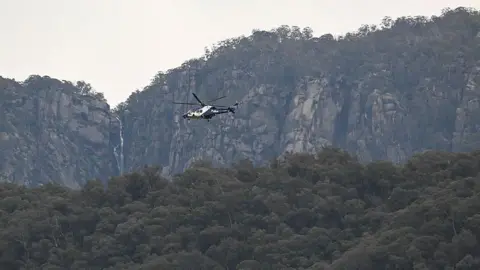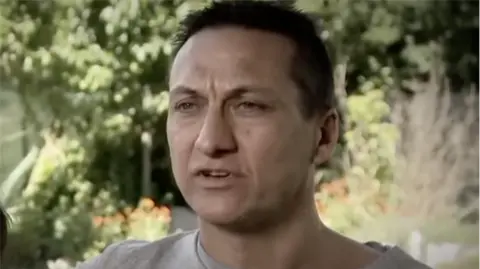In the midst of a significant manhunt in rural Australia, Porepunkah—a little-known town—has suddenly become the focus of national and international attention. This small community is known for its picturesque landscapes and wineries but is now marked by tragedy and fear following the violent deaths of two police officers. The alleged assailant, identified as Desmond Filby, has sparked a manhunt after allegedly murdering the officers in an ambush fueled by anti-government sentiment.
The incident rocked the tranquil atmosphere of Porepunkah, transforming it into a scene of despair. It began with police arriving at Filby's property to execute a search warrant, reportedly linked to a sex crimes investigation. Instead of compliance, officers were met with gunfire, resulting in the deaths of Detective Neal Thompson and Senior Constable Vadim De Waart, with another officer still recovering from serious injuries.
This tragic event has reignited discussions about the presence of anti-government 'sovereign citizens' in Australia. Such groups, often considered fringe, have been dismissed as isolated crackpots, but their ideology has seen a resurgence in recent years, particularly during periods of heightened government intervention like Covid-19 lockdowns.
Filby's beliefs fit neatly within this disturbing demographic. Labelled as a 'sovereign citizen', he is thought to have rejected government authority and law, an ideology that has frightening implications. Scholars suggest that ideologies foster a mistrust of authority and can lead individuals to violent actions, a concern that many in Porepunkah now feel acutely. Emily White, a local business owner, recounted her shock and fear over the situation, underscoring the community's sense of safety shattered by the violence.
The events echo a similar tragedy from 2022 in Queensland, where police faced deadly violence from individuals also aligned with anti-government beliefs. Both communities are left grappling with the haunting spectre of violence driven by ideologies that undermine the very foundations of Australian democracy.
Experts warn against underestimating the impact of such conspiracy theories, advocating for a national conversation on how to address the underlying causes. With the hunt for Filby ongoing, the call for a comprehensive response to the dangers posed by pseudo-law beliefs grows stronger, echoing a shared worry that without proper intervention, incidents like this could become tragically recurring themes in Australian law enforcement history.



















